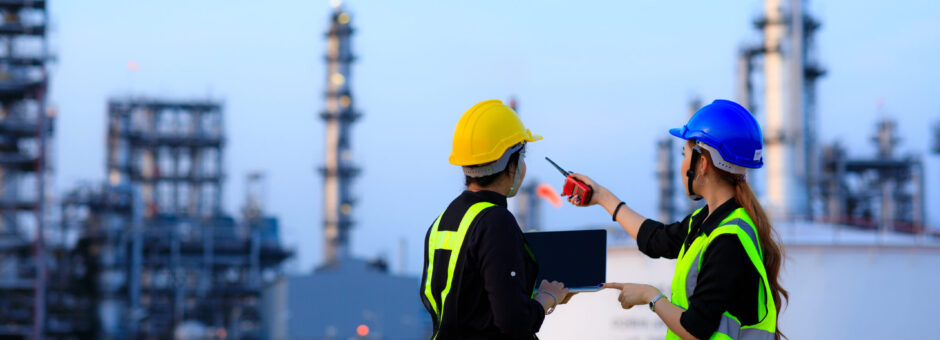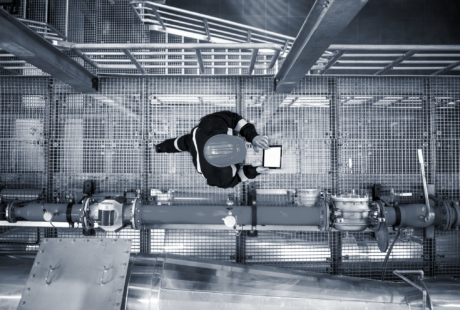Related:
Industrial Automation Transformation Spans Industries
Artificial intelligence is impacting the chemical industry by changing the way chemicals are developed and manufactured. The industry will look to recruit individuals capable of harnessing the power of AI and automation as it moves toward a more technologically advanced and environmentally friendly future.
Impact of AI on Chemical Manufacturing
“Artificial Intelligence (AI) has had a significant impact on all areas in the chemical industry. It has changed value chain management, enabled innovation, increased productivity, and identified new channels to reach the market,” writes Nils Janus, Head of Advanced Analytics at Covestro.1
Andreas Eschbach shares a similar outlook in a recent Forbes article. “In the near future, a new wave of cognitive computing applications and infrastructure, collectively known as Industry 5.0, will transform chemical, pharmaceutical and biotechnology manufacturing, leading to innovations in drug therapies and dramatically accelerating new drug discovery,” he writes.2
AI in Production and Supply Chain Management
Increased computational power and the capacity for greater data collection has brought about a range of advantages.
Production efficiency is of great importance to chemical manufacturers, as it is in any manufacturing environment. Integrating AI solutions into the production process will allow for the early identification of inefficiencies, or complications that could lead to costly stoppages.
Likewise, predictive analysis is being used in both the supply and demand sides of the supply chain, informing production and procurement decisions.
“Advanced analytics help in estimating demands for raw materials, streamline the supply chain that could lead to a potential delay and avoid last-minute price hikes,” continues Janus. “Several transformations at every step of molecule development in the chemical industry are possible through forecasting methods of AI.”1
AI can also be a useful tool in the fight against climate change. During the R&D phase machine learning can predict the potential environmental effect of pollutants, allowing companies to alter machineries, chemistries, and processes accordingly.
Breakthroughs in Enzyme Development
The cumbersome process of chemical development is being significantly expedited through use of the technology.
“AI-based tools and apps help develop molecule structures based on target markets,” according to a recent article by CIO Review. “They uses machine learning to calculate permutations and combinations of various chemicals to find the best variety without manual experimentation in the lab.”3
Enzymes are a particularly ripe area for advancement, with money being poured into a number of new platforms for development. One such example is the recently announced partnership between enzyme development start-up Arzeda and consumer goods juggernaut Unilever.
Enzymes are a key component of household cleaners, and Unilever hopes to develop new ones in order to eliminate petroleum-derived ingredients. Arzeda believes that deep learning will allow them to improve enzymes or even build new ones from scratch.
“Our impact on the field of enzyme engineering is improving the manufacturability and performance of existing classes, and then creating new classes of function, and new modes of action,” says Alexandre Zanghellini, Arzeda’s founder and CEO.4
Two chemical engineers at the National University of Singapore have developed a new system for screening amino acid combinations and identifying which ones hold the most potential for new enzyme creation.
Current testing processes normally allow for several hundred enzymes to be tested per day. Allozymes claim that their platform will shatter this paradigm by testing up to ten million amino acid combinations daily.
TechCrunch recently profiled the technology. “The process is fully contained with a benchtop device, and generates almost no waste. Instead of using culture dishes, the device puts the necessary cells, substrate, and other ingredients in a tiny droplet in a microfluidic system. The reactions occur inside this little drop, which is incubated, tracked, and eventually collected and tested in a fraction of the time a larger sample would take.”5
Recruiting for Chemical Manufacturing
As AI and machine learning become more and more prevalent in the chemical manufacturing industry, the need for capable engineers, operating managers, and operators will likewise grow. There will of course be competition with other industries for elite talent, so recruitment efforts must be robust. Fully automated manufacturing operations are not feasible in the chemical space, so companies will strive to have human and machine work together seamlessly.
“Today, artificial intelligence has transformed science in laboratories and in R&D,” says Eschbach. “Now these achievements are needed to support processes on the shop floor with powerful cognitive applications — that is, to make data useful for people so that people and machines can work together as teams to build a stronger, more resilient system.”2




